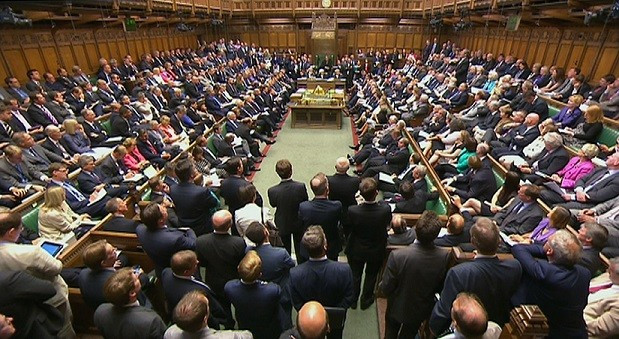MPs in Parliament Viewed Porn Websites 300,000 Times

New figures suggest politicians and staff in the Houses of Parliament attempted to access online pornography more than 300,000 times last year - and a website for extramarital affairs was one of the most popular sites.
The figures shows that, on average, computers in Westminster blocked attempts to access what was perceived as pornographic material over 800 times a day between May 2012 and July 2013. The data was released following a Freedom of Information (FOI) request by The Huffington Post UK.
The revelations will be seen as embarrassing to David Cameron, who recently suggested that households have an "opt-in" system to view pornography online in a bid to stop children viewing inappropriate content.
The House of Commons has said the figures may have been skewered by pop-ups and websites which refresh automatically, rather than genuine efforts to access sexual content.
According to the figures, one website called Out of Town Affairs - a website for "unsatisfied" married men and woman looking to have extra-marital affairs - was viewed 52,000 times over a seven-month period.
The figures also show that Westminster computers blocked attempts to access 'adult' websites 114,844 times last November and 55,552 times in April 2013. However, the numbers vary wildly, with computers blocking access to websites classed as pornography just 15 times in February 2013.
Officials could not explain what the filters on the parliamentary computers identify as porn nor why the figures vary so much.
A spokesperson for the House of Commons said: "We do not consider the data to provide an accurate representation of the number of purposeful requests made by network users due to the variety of ways in which websites can be designed to act, react and interact and due to the potential operation of third party software."
The Commons added: "We are not going to restrict parliamentarians' ability to carry out research."
Matthew Sinclair, chief executive of the TaxPayers' Alliance, said people should be concerned about the figures.
He said: "These figures highlight the fact that many people working in Parliament are spending far too much time on websites that have nothing to do with their job.
"The internet can be a useful tool for MPs and their staff when it comes to scrutinising Government legislation; however taxpayers expect their MP and those working in their offices to get on with their important jobs rather than spending time surfing questionable websites.
"It's important that these figures are in the public domain so that taxpayers can see exactly how the time they are paying for is actually being spent."
© Copyright IBTimes 2025. All rights reserved.






















